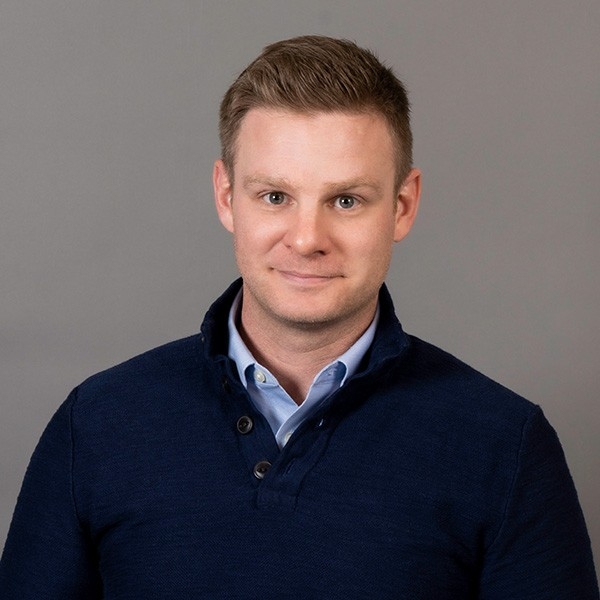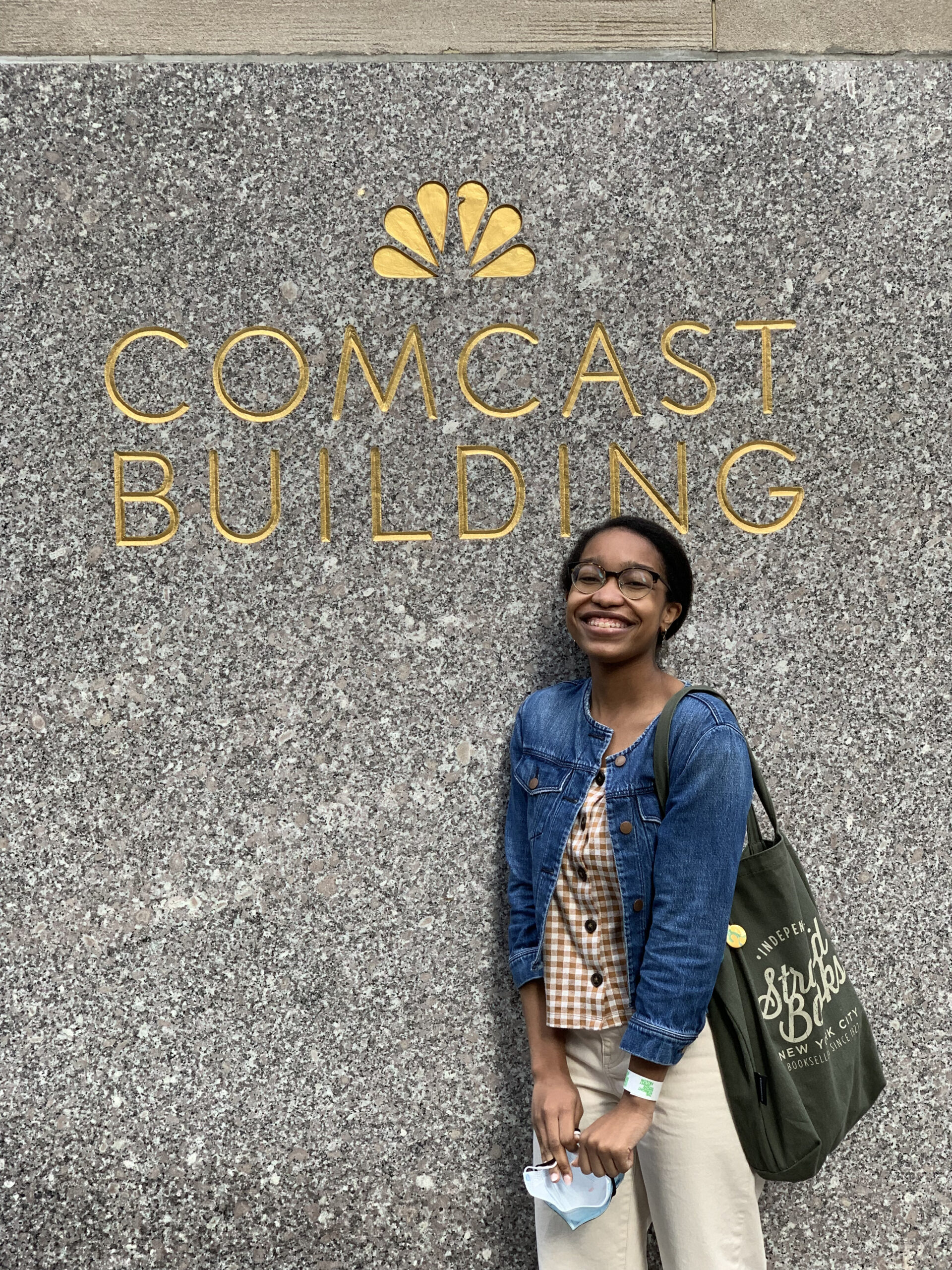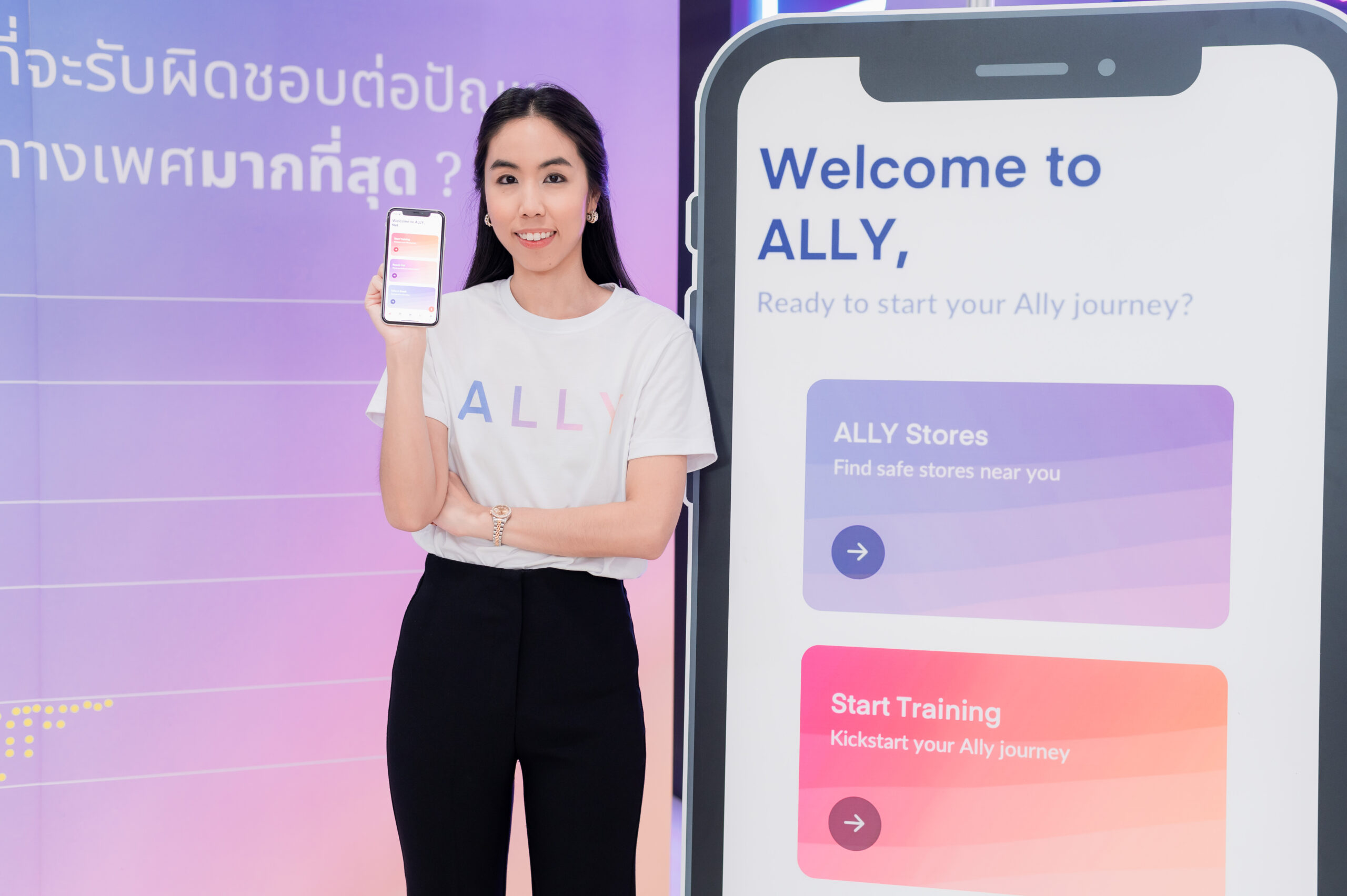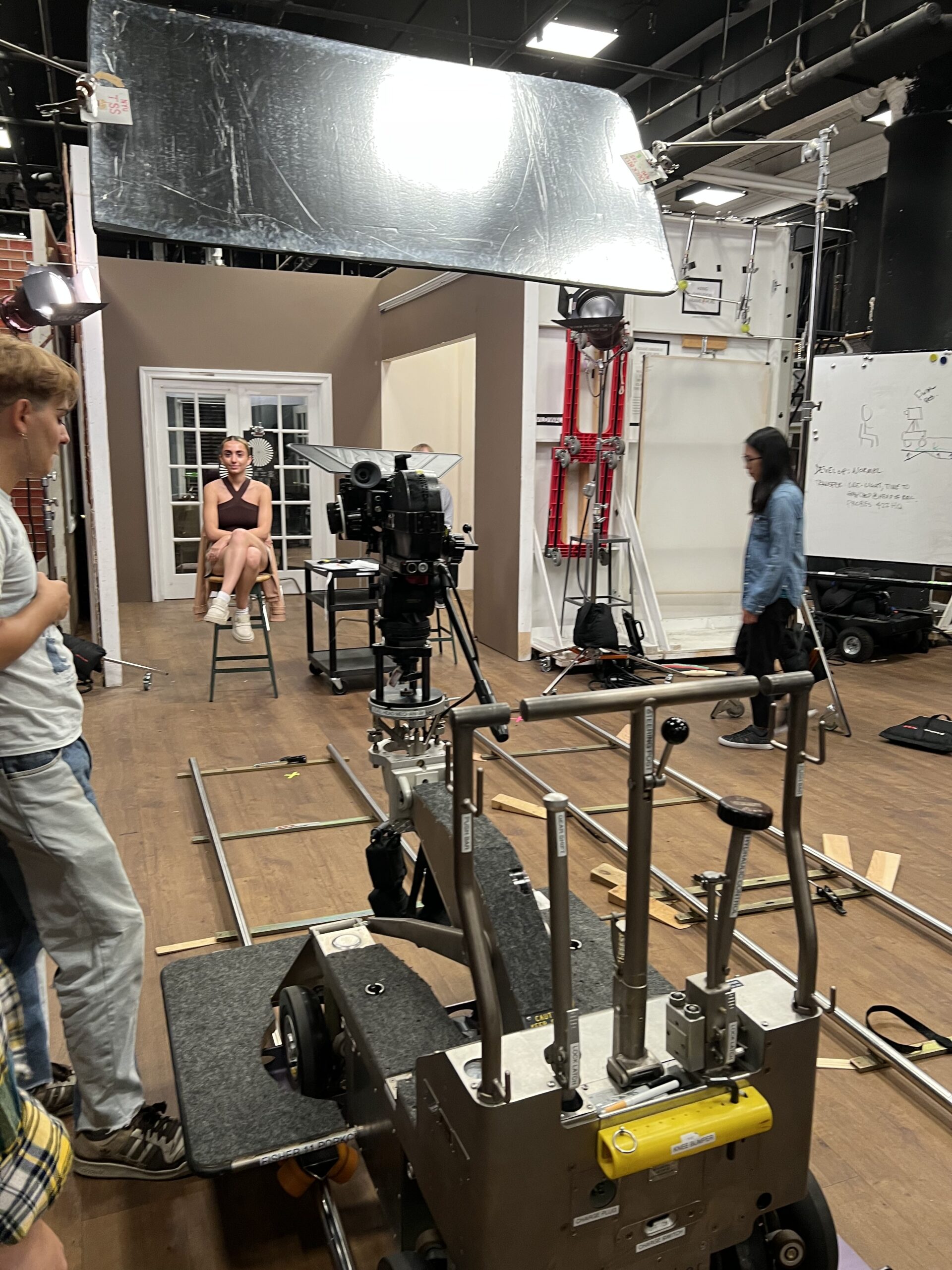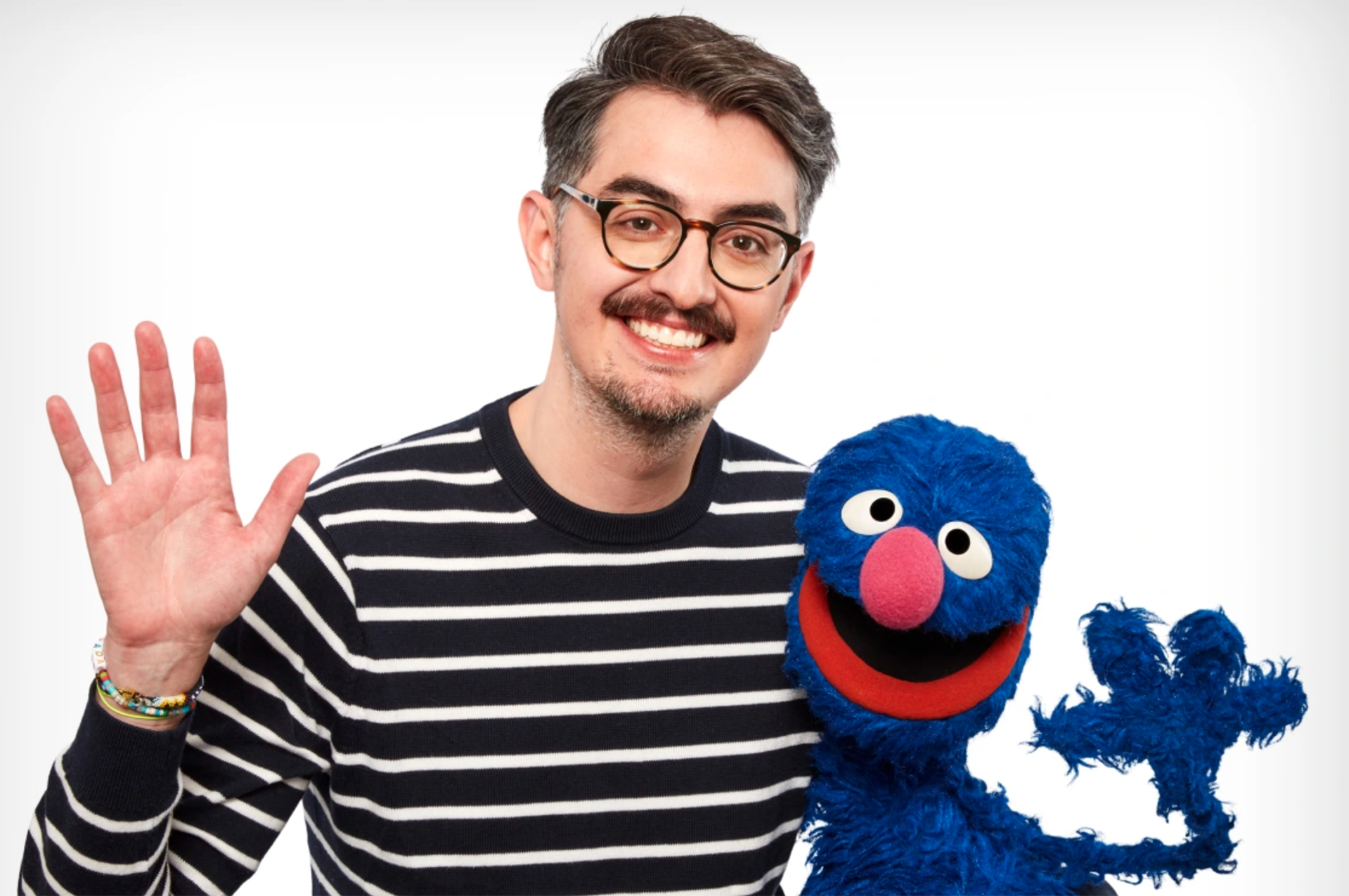
This story was originally written by Alex Manges, assistant director of alumni relations at the NYU Tisch School of the Arts, for the Tisch website. It is republished with revisions here with permission.
Sal Perez, an NYU Tisch School of the Arts alum, got an early start to his career. Raised in a first-generation Mexican American family in the San Francisco Bay Area, Sal developed a love for storytelling and film when he was young, fueled by his role as a family translator during movie nights. This unique experience instilled in him a deep appreciation for the power of storytelling—as well as a personal knack for it.
Sal graduated from NYU Tisch in 2006 with a BFA in Film and Television. Today, he is an executive producer for the long-running children’s show Sesame Street. In fact, he is the first Latinx executive producer in the show’s history. In his role Sal steers the show’s development, responding to recent social and cultural events, such as the COVID-19 pandemic and social justice movements. Through everything, Sesame Street remains steadfast in its mission: to connect with children at the current moment in time, helping them feel seen and understood.
The NYU Tisch Office of Alumni Relations got a chance to learn more about Sal’s journey from the Bay Area to NYU Tisch to Sesame Street—and the places he’s been along the way.
Getting Started Early in Life
Alex Manges: Just to kick us off, what brought you to NYU Tisch?
Sal Perez: I’m originally from the Bay Area, and I’m a first-generation Mexican American. Growing up in an immigrant family, television and movies were a big part of my childhood. My parents didn’t speak English, so when we would watch a movie together as a family, I would translate. I think that really got me to love storytelling and films. Plus, it helped me understand a little more about the inner workings of a character. By the time I got to high school, I knew I wanted to work in film and TV somehow. But I had no connections in the industry.
I applied to NYU as a long shot. When I got in, my sister was the one to be like, “You have to do this. You’ve got to take a shot.”
Alex: Was there one TV show or movie that you remember being really drawn to when you were young?
Sal: We would watch a lot of action and horror movies. I think about it now that I’m a dad, and I would never share them with my daughter. But I watched Friday the 13th and all the Arnold Schwarzenegger Terminator franchise films as a 5-, 6-, and 7-year-old. They weren’t necessarily scary to me because I was busy translating them.
I really liked analyzing the stories and thinking about the structure. I remember writing really good essays and reports about the films, similar to the ways people write about literature. It was always something I connected with.
Alex: What an interesting role to take on, playing the narrator while simultaneously processing the film. And how lucky that it sparked a love for storytelling!
Sal: Absolutely. It definitely sparked that love because it was also a communal thing; it was always something that we were doing together as a family. Instead of silently watching together, it was a much more dynamic experience. We didn’t do it at movie theatres because they probably would have kicked us out. However, we definitely did it at home.
NYU Connections Create a Path Toward Opportunity
Alex: So how were your first few months at NYU Tisch and in New York City?
Sal: I don’t know if they still do this, but on our very first weekend as Tisch students, they took all the film kids camping. Then, in small groups, we had to make a short, three-to-five-minute movie during the trip. Aubrey Plaza was in my cohort, and Matthew Gray Gubler played an old, funny movie on the screening day. It was strange—our first weekend in New York City and we left the city. It was really fun though!
Everything was very exciting at the beginning. But after a while, you start to feel lonely, especially in a big city like New York. There was a period in my sophomore year when I didn’t totally know where I fit in. I ended up applying to study away at NYU Prague and went during my junior year. Honestly, that was probably the best experience I had at NYU. Now my best friends are the people whom I met during study away. We did a full semester in Prague and wanted to stay together, so some of us went to Havana, Cuba, for the next semester.
Gabe Pulliam, who is also in the kids’ television industry with his show The Octonauts, was one of my friends at NYU Prague. Not a lot of people go into kids’ programming, so I thought it was a funny coincidence that we both did.
Alex: On the topic of kids’ programming, how did you find your way to Sesame Street?
Sal: One of the people in my program in Cuba was Sarah Brown, a friend whose mother was the senior producer for Plaza Sésamo, the Latin American Sesame Street. After we got back to New York City, I started looking for an internship for my senior year. I had an interview at Sesame Street for their session workshops, and when I told Sarah, she said her mom was looking for someone who speaks Spanish and knows production.
I had my interview, then went to speak with Sarah’s mom. And later that day, she called me and said, “It’s not an internship, but you seem great for this job.” So, I started working as a production coordinator for Plaza Sésamo during my senior year at Tisch. Three days a week, I went into the office. By then, I only had classes two days a week—and, once I graduated, I hit the ground running.
I got to learn very quickly. I was this 22-year-old kid who had no idea about anything. And I was just learning from the industry and figuring out how things were done.
Growing a Career That Has a Positive Impact
Alex: So, 16 years later, you’re now an executive producer of Sesame Street—the first Latinx executive producer for the US version of the show. What was that journey like, and what does this new role mean to you?
Sal: It wasn’t a straight line. I stayed with Plaza Sésamo until I was 28, when I left to work on a variety of other shows and projects in Mexico and Spain. A few years later, I got the opportunity to work as the supervising producer for the US Sesame Street, which always felt like the mother ship. Shortly after I started there, an executive producer left the show. It all happened very quickly.
I try not to feel too daunted because it is an incredible responsibility. I’m very proud of what it means for my culture and my family. My wife is from Mexico, so my daughter is Mexican American as well.
I try to use it to my advantage in how I think about things. I want to make the community proud. It’s kind of like my North Star, guiding any decisions I need to make for content or the organization at large. Keeping an eye on that North Star helps me make decisions that are fair and equitable.
Alex: In your time with the show, how have you seen its stories and mission evolve?
Sal: One of the major things about the show is that we’re always trying to speak to kids at the moment—to meet them at the moment with what’s happening in their lives. But what’s been happening in their lives over the last couple of years has been incredibly extreme!
Between the pandemic and everything happening around social justice movements and what they’re seeing in the media, it’s been an opportunity for us to find new ways to address the moment. We’ve always been a very inclusive and diverse organization, but how do we continue to help kids feel seen?
One of the early projects I worked on in my current role was a special called “See Us Coming Together.” It celebrates the Asian American and Pacific Islander communities. We created a new character for the special, Ji-Young, who is a Korean American girl played by the talented puppeteer Kathleen Kim. Ji-Young likes to play music and she’s a bit of a rock star. But, someone tells her that she “doesn’t belong here.” Anyone who has ever had that experience and comes from another country, or whose family comes from a different country, can relate to that. Even though I’m Mexican American, I completely understand what she was going through as a Korean American.
That sort of story is universal, even when it’s specific to one character’s background. That’s something we think about a lot: How do we continue to help kids feel connected and represented? Hopefully, we can help them understand a little bit more about the world around them and help them feel like they belong anywhere.
